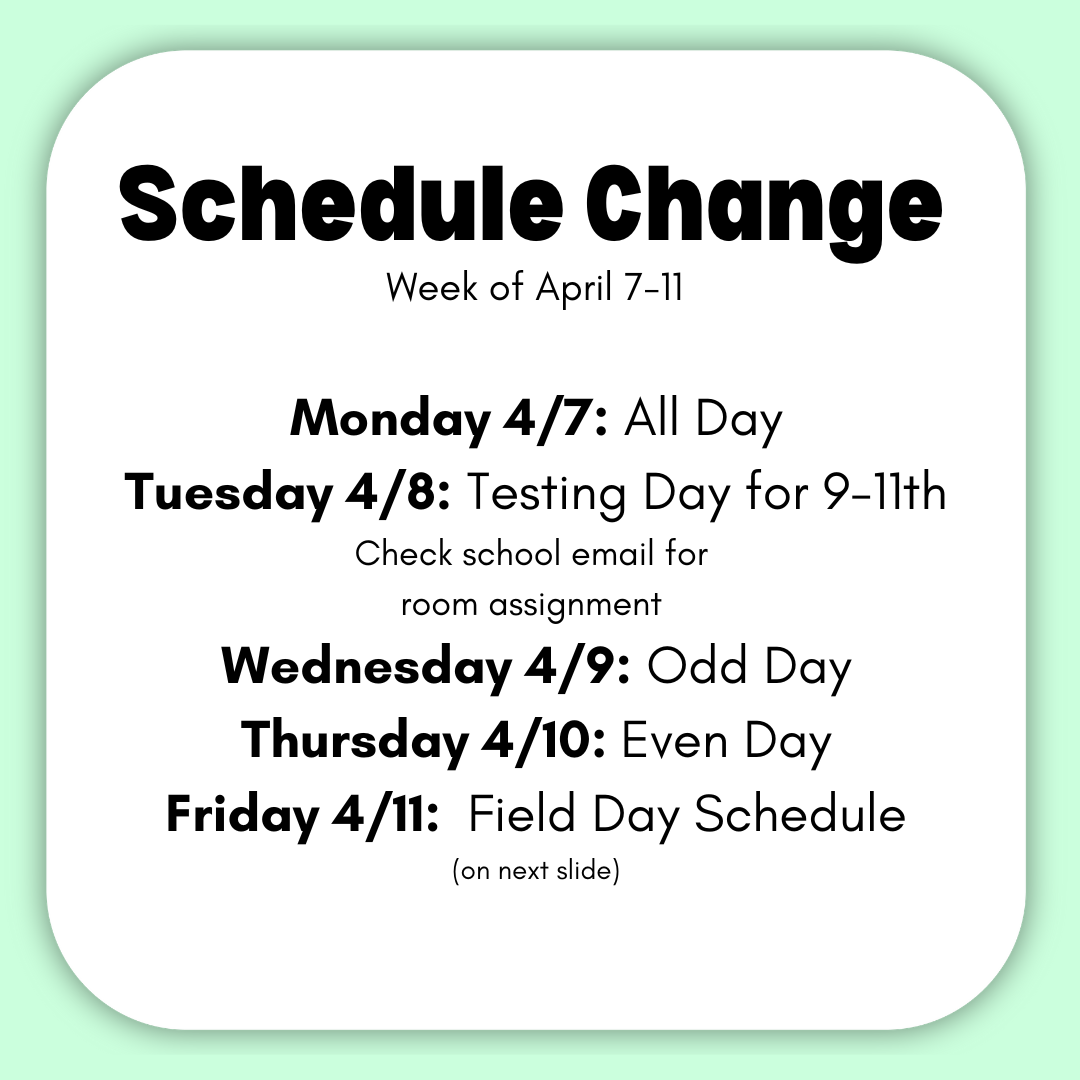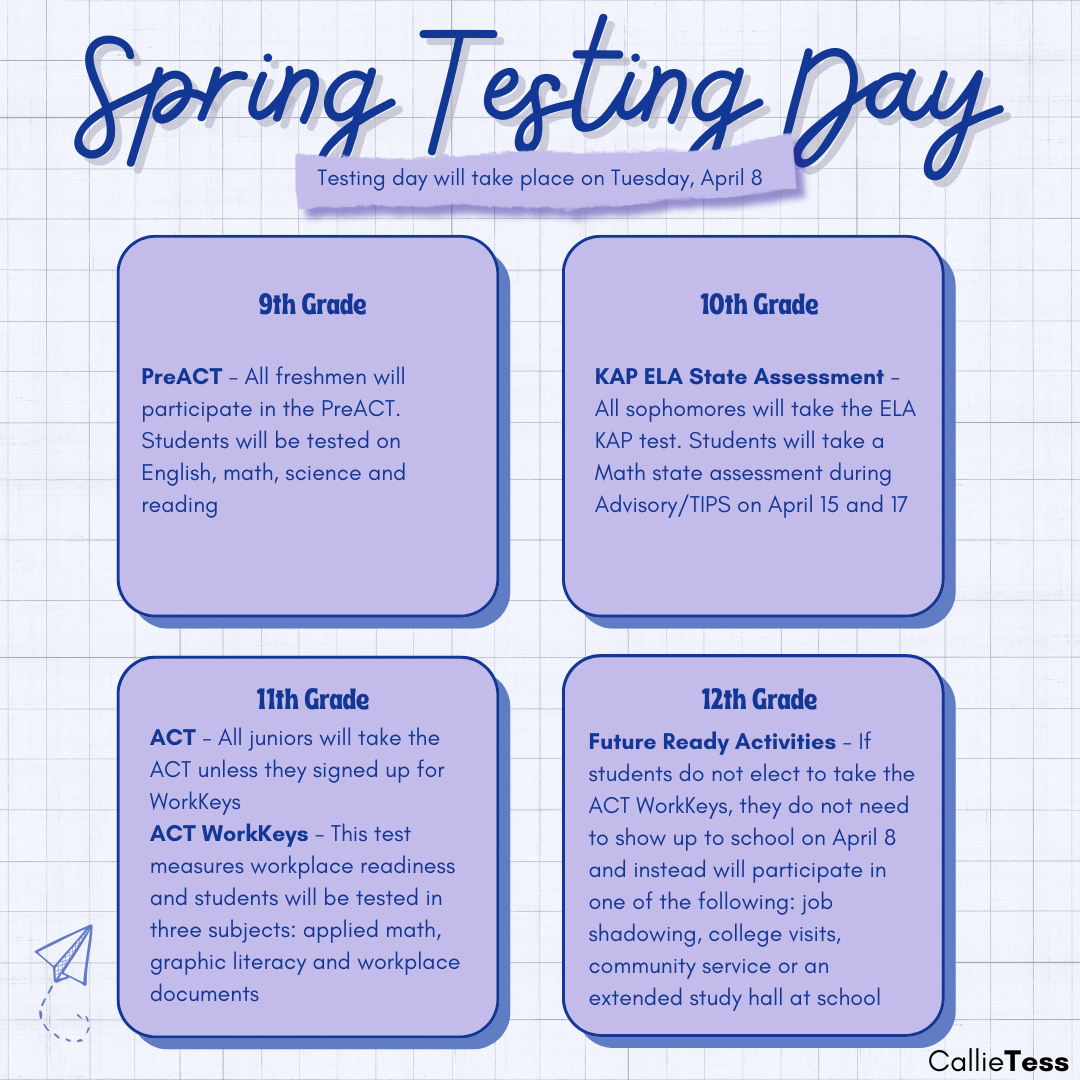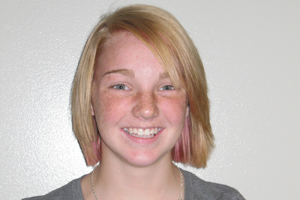In correlation with President George W. Bush’s No Child Left Behind (NCLB), the Kansas state assessments look to bring students to meet Adequate Yearly Progress (AYP) in both reading and math. The state also tests students in other areas such as writing, social studies and science, but students will have to meet new standards for state testing beginning in 2014 with 100 percent of students meeting AYP.
“It’s called Common Core,” principal Scott Roberts said. “Thirty-six states came together and basically said that we want a more rigorous set of standards than NCLB. The current standards are currently a mile wide and an inch deep where students know a little bit of a lot of material. Common Core will have less material, but will go into greater depth.”
This year, the Kansas state math assessments will include piloted Common Core questions to see if the questions are reliable for Kansas students.
“We are going to say a script to the kids and tell them they may see something on here that you’ve never seen before,” Roberts said. “Don’t get over-anxious about them since they won’t go into your score.”
Southwest was exempt from state testing last year due to it’s new school status, but this year all scores will count toward the district’s complete average. The Blue Valley School District is the only district in the nation with over 20,000 students meeting Adequate Yearly Progress every year in all grade levels and content areas.
“It’s been typical in Blue Valley that our goals are set way beyond the AYP standards,” assistant principal Lisa Wilson said. “I think that’s because our students have performed well and we are continuing to push ourselves to greater things.”
Last year, only juniors who didn’t meet standards in reading and math retook the assessment in those subjects. Because of this, average scores looked lower than they have in the past.
“Our state report card last year was very misleading,” Roberts said. “95 percent of our juniors met AYP last year in reading. Our math scores looked like we only had 66 percent because students who didn’t make standards retook the test. People would ask, ‘What happened to your math scores?’ but only the kids who didn’t meet standards took it, not all the juniors.”
The Blue Valley School District has started using new tools in the classroom to help students meet NCLB proficiency standards. Classes such as Read 180 and Intro to Algebra II along with Study Island offer students extra preparation for the assessments.
“We test them as sophomores, then we try and diagnose,” Roberts said. “Typically, students who don’t meet standards aren’t a surprise because we already have a pretty good idea of who they are based on past test scores.”
To try and counter student’s attempts to blow off state assessments, Southwest has initiated various incentives to try and convince students to take the assessments seriously.
“If you do well on a state assessment, you can opt out of a final exam,” Roberts said. “We like to make it worth your while. Students realize that it’s a reflection of our school and if they don’t do well, it reflects back on Southwest. I think kids are pretty proud to be here and it gives student’s a reason to be here.”
With many states such as Oklahoma, New York, Colorado and Minnesota looking to be granted a waiver from NCLB from President Obama, Wilson claims AYP goals benefit students in the long run.
“We look at every student,” Wilson said. “We don’t look at just percentages. If 95 percent of them get it, then that’s great, but I don’t want my student to be the 5 percent that doesn’t, so we have the whole AYP and No Child Left Behind. As crazy as it seems, it has forced educators to not have anybody fall through the crack.”









